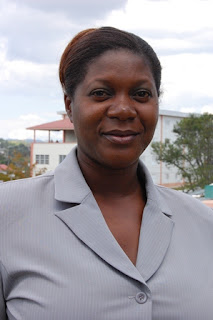By Marsha N. Woolery, Healthy Eating & Diet
Nutrition plays an important role in the treatment of breast cancer. A person's nutritional status depends on food intake, stage of cancer, type of treatment or therapy - whether surgery, chemotherapy, radiation therapy, hormonal therapy or a combination - side effects of therapy and nutritional status before treatment started.
Nutrition plays an important role in the treatment of breast cancer. A person's nutritional status depends on food intake, stage of cancer, type of treatment or therapy - whether surgery, chemotherapy, radiation therapy, hormonal therapy or a combination - side effects of therapy and nutritional status before treatment started.
Research has shown that treatment will not be as effective if good eating habits are not practised.
Good eating habits are needed to promote a healthy body, to lower the risk of the cancer spreading, to maintain and or reach a healthy appropriate weight, if obese (weight loss is recommended, but only for the loss of fat not muscle), to control side effects of treatment, to promote wound healing and prevent infection for persons who remove breast(s) and tissues (mastectomy) and to increase survival, wellness and quality of life.
To promote good nutrition in persons with breast cancer, it is important to encourage the consumption of foods from all six Caribbean food groups.
Staples, the unrefined type such as yam, banana, potatoes and whole grains; foods from animals that are low in fat such as skinless chicken with visible fat removed, fish, eggs, low-fat cheeses and milk; legumes such as red peas, broad beans and peanuts; fruits with a variety of colours; vegetables with many different colours and fats and oils from plant sources that are unsaturated such as corn, safflower, olive and soy.
The consumption of more coloured fruits and vegetables have been proven to be effective, as the fruits and vegetables have antioxidants that help to reduce cell damage which decreases the risk of cancer cells multiplying and spreading.
Maintain healthy weight
Maintaining or reaching a healthy weight is important because excess fat on the body increases the risk of breast cancer and the spread of the disease. It is, therefore, recommended that the amount of calories or energy consumed is not excessive to cause weight gain. One should not overeat because excess energy is stored as fat. Exercise should be done for at least 30 minutes every day to increase muscle on body and get rid of excess or stored fat. The body mass index should be less than or as close to 25 as possible.
Increase protein intake
Many persons with breast cancer remove breast(s) and, possibly, some tissues near the breast and, or receive treatment to get rid of cancer cells and good healthy cells, therefore, it is important to increase the intake of protein during and after treatment. Protein is needed by the body for the making of new cells and for the repair of tissues that are destroyed during treatment.
It is recommended that high protein foods such as chicken, fish, peas, beans and milk be eaten, but they should be low in fat. The use of high-fat salad dressings, butter, margarine, ackee and pear should be limited. Processed meats such as ham, bacon, sausages, smoked meats and fish and fatty red meat should be avoided or limited.
The treatment for cancer has several side effects that may affect the health and nutritional status of the person receiving the treatment. These side effects include loss of appetite, early satiety, loss of muscle, oedema, nausea, pain and loneliness and emotional changes.
The loss of appetite may be as a result of one's state of mind, the disease itself and medication. The loss of appetite may be treated by consuming small, frequent meals that are nutrientdense and using appetite enhancing medications as prescribed by a registered medical practitioner.
Marsha N. Woolery is a registered dietitian/nutritionist in private practice and adjunct lecturer at Northern Caribbean University; email: yourhealth@gleanerjm.com.


No comments:
Post a Comment